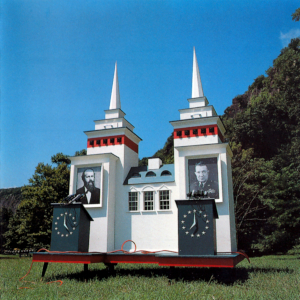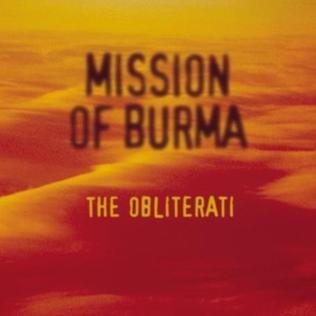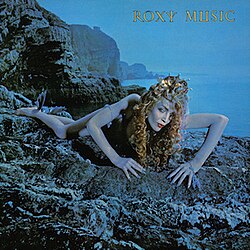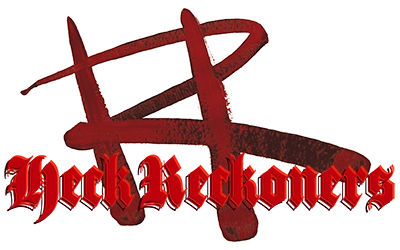We’re coming up on 30 years of the mainstreaming of the internet and I think there’s an argument to be made that it has, overall, been a net negative for politics, culture, and humanity. Most probably agree that its good/evil splits are around 51/49, flopping one way or the other depending on what’s happening in the news.
In some ways the internet has made being in a band more complicated, as now even your least ambitious cover acts are expected to manage a website, craft a brand, and regularly produce “content” (yuck) for social media. In the past, you used to build a network by going out to shows, trading CDs, and getting loaded with strangers. You know, fun stuff. Now it’s much more dependent on maintaining email lists, harvesting clicks, and selling downloads. The data driven internet also lets you (and others) know things you’re probably better off not knowing, like how many people are listening to your music, and how your listener numbers stack up against your friends’ and rivals’. (Thanks, Spotify, you cheapskate fucks.)
Like most work in America, band work has, more and more, involved interacting with the internet. But this column isn’t for bitching about the 51 percent that’s potentially leaching away our humanity and turning art into statistics, it’s to celebrate the ways in which the internet makes being a musician, or a fan of music, easier and more fun. The internet has too much negativity already, and there’s no place for it in a Heck Records column, so let’s put on a smiling face and go check out some cool – and free – things on the internet. (Note: none of these involve social media.)
ALLMUSIC.COM:
Launched online in 1994, the All Music Guide is one of the OG websites, and one with an impossibly ambitious goal: to catalog all music in existence. Since Heck Reckoners’ Touch Grass is nowhere to be found on the site, it has obviously failed. Yet even for a failure, allmusic.com contains a massive trove of data, having compiled three million album entries, 30 million track entries, and thousands of band biographies and reviews into an easily searchable database. I like using it to explore microgenres of music that I’ve never heard of before, like Electronicore, Pygmy, or Miscellaneous (Classical). Their starred reviews, when paired with users’ averaged reviews, also give readers a good indication of which album to start on with a new artist who has a big catalog. (Looks like Merzbow’s 1998 album 1930 is the recommended place to jump in.) Consider subscribing to their service, because they’re hanging on by a thread.
YOUTUBE GUITAR LESSONS:
Paul McCartney tells a story about taking the bus across Liverpool to learn how to play a B7 chord because that’s how gatekept information was in the 1950s. This story is probably bullshit, but it does reveal how much harder it used to be to gain information to learn new skills.
Initially, I learned guitar in the internet 1.0 era from a Scandinavian who wrote lessons and tabbed out blues turnarounds with numbers and hyphens, and the still extant Lou Reed Guitar Archive (loureed.it), which still published only in courier font. Needless to say, it took me a while to get anywhere with guitar (though I eventually nailed a chromatic, string-skipping turnaround that is still probably the most impressive thing I can play).
Did you know it’s easier to learn guitar by watching other people play guitar than by reading about them playing guitar?
Web 2.0’s video era offers a whole new world for people not only new to guitar, but old heads trying to learn new skills – and so, so, so much content is available on Youtube. All it will cost you is the time to watch the same seven second advertisement for Sweetwater every nine minutes or so.
I like Eric Haugen Guitar (https://m.youtube.com/@EricHaugenGuitar) and Sean Daniel (https://www.youtube.com/@seandaniel23), probably because neither are shredders, they’re both around my age, and they both make handsome, charming, information-rich videos. But you can find any type of teacher, teaching any style of guitar, with any type of teaching philosophy.
The best teachers go beyond teaching guitar technique to include lessons on how to run a good band practice (https://m.youtube.com/watch?v=oQZkANR2E-w&pp=ygUaSG93IHRvIHB1dCB0b2dldGhlciBhIGJhbmQ%3D), how to tour (https://youtu.be/Kq5VPV5c13I?si=x5VQr_lNRh3d0Vns), how effects pedals work (https://youtu.be/R7dlK46DDU0?si=cn0BjMS2JZXaXA81), and, in the extremely autistic corner of Youtube, how to diagram songs into theoretical frameworks with fun pictures (https://youtu.be/HtcJvqwXL-E?si=YO1bHpNu6PWtbo0S).
Just be wary of the edutainment segments whose only reason for being is to sell you new gear. Ninety-nine percent of the time, you don’t need more gear, you need more practice.
PATCHSTORAGE.COM:
The number of digital gear holdouts is growing smaller and smaller as the years progress, not only because Digital Signal Processing hardware and software has improved to nearly equal the analog stuff, but because the analog diehards are getting too old to crate around Marshall JCM800s and 4×12 stacks. Another reason? Digital gear lets you do a bunch of shit that diodes and tubes can’t replicate. The only problem is that you have to program it.
Or do you?
You don’t.
You just download patches that other (smarter, dorkier) people have made and then upload them to your pedals or synthesizers. The internet is so good, you don’t even need to learn how to use your gear. But you can do that if you to, too (https://youtu.be/IsNusPfswF4?si=H1HuSrMXYIjvMA-f).
OOLIMO.COM:
Speaking of not learning stuff…much of what I write on guitar comes together not because of theoretical intuition, it’s more because my fingers fell somewhere that my ears liked. Sometimes they fall in some pretty odd looking shapes. While a musician worth a damn could name you every note they’re playing and how they fall into the key, I often need a little help. Oolimo lets me cheat. When I’m a little lost with what chord I’m working with, I click my fingering into Oolimo’s fretboard and it gives me a suggested chord name. Then when I’m writing the song out to share with the band, I’ll use the most appropriate chord name. More than once I’ve come up with a really pretty chord only to discover it was, like, a C major fingered in a weird way.
ROBERTCHRISTGAU.COM:
The self-titled Dean of American Rock Critics is 82 – and his website looks just about as old – but it’s functionally rock solid, updated regularly, and contains 60 years of Christgau’s capsule-sized record reviews. No one in rock writing can cram as much wit, insight, pretension, and humor into 100 words. To paraphrase one of my favorite lines he wrote about Prince’s Dirty Mind: other rock writers should fold up their pencils and go home. (https://robertchristgau.com/get_artist.php?name=Prince)
PLUTO / TUBI / KANOPY:
We could (and should) praise Youtube for all the free live music content, but let’s not suck off the Alphabet Inc. multimedia conglomerate too hard, for they’re more responsible than anyone for the internet’s enshittening. Instead, let’s shine a light on these services that can be had for the cost of an internet connection, and, in the case of Kanopy, a library card. You can watch Tom Petty: Running Down a Dream, Meet Me in the Bathroom, Nas: Time is Illmatic, the freaking documentary about Pavement’s first drummer, Soundtrack to a Coup d’Etat, and the Marx’s Brothers’ Night at the Opera. And that’s only on Kanopy – which has no commercials. Oh, and they have regular movies too. This is so much better than waiting through all the pledge drive crap so I could see the Woodstock documentary on PBS in the 1990s.
For a Heck Record this week, listen to my buddy Jake’s experimental EP, Pinkorat’s MSPaint. He’s got a new one dropping next week.







